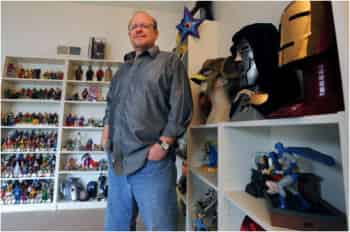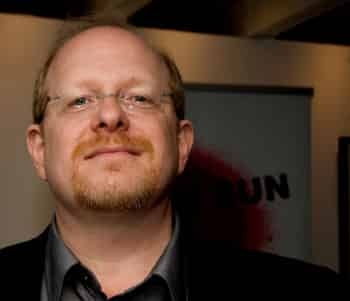Bonus
-
The art of the review
To dive in and write, one has to either be unaware or believe we can offer readers a distinctive voice. So in that sense we have already passed judgement on the work of other authors. We talked about this in our list axioms.
On a similar note, we came across this complaint by Anthony Falcone: “I’ve been reading a lot of comic book reviews while prepping this article and while I won’t provide any links (I’m not trying to call out specific writers here), I will say that the majority of them are mostly story summaries with brief discussion of the art. If the review is positive there will be some sort of acknowledgement of the artist’s skill, but if the review is negative the art will be briefly dismissed with an amusing quip. At times an artist will receive a negative comment on the neutrality of their work; it is functional, satisfactory, or pedestrian.” (Anthony Falcone, “Accentuate the positive, eliminate the negative?,” October 10, 2013, http://www.comicbookdaily.com)
The Internet doesn’t foster constructive dialogue, since negative and incendiary comments are the ones that get attention. So we really appreciate reviews that have some breadth, that don’t limit their comments to the title being reviewed but rather looks at it (or its writer or genre) in context, or that adopt a unique point of view, one that isn’t commonly heard. For instance, some of our favourites are the team at A.V. Club for TV, some writers at Badass Digest for movies, Christine Duffee for her work on Daredevil, Darren for film (and comic books) and Sylvain Lavallée for comic books.
-
How far should dialogue go?
We read this critique by Corey Schroeder of a Jonathan Hickman title:
“I’ve said it of Hickman before, but the man does not stop for a second to explain or even elucidate in some cases what his characters are talking about or doing, which can make his books extraordinarily difficult to follow at times. Certainly the broad strokes of what’s going on are crystal clear, but the details, and the devils within, are harder to track and follow. Expository dialog can be the thing that brings a book down, but it can also elevate it by letting the audience in on what’s going on, and what’s been going on, and there’s certainly a balance to be struck between too much and none.” (http://www.comicvine.com/new-avengers/4050-55330/forums/new-avengers-8-1480934/)
We’ve mentioned this before in several contexts: we support minimalistic dialogues where characters don’t spend a lot of time explaining their feelings or summarizing recent events. To avoid these types of situations, we prefer to slow the pace down so our characters can debate the pros and cons of their choices, rather than rushing ahead and then explaining what happened after the fact.
-
The size of the universe
In this interview with Mark Waid, he talks about the Daredevil universe: “In some ways he was a poor man’s Spider-Man in that they were trying to emulate the same sort of soap opera, but the problem that you have with Matt Murdock was that first off, the supporting cast was much smaller. Spidey had a huge supporting cast, and Matt had Foggy and his secretary Karen and that’s it.” (“Mark Waid: A Banner Year Part One,” December 18, 2012, http://www.comic-con.org/toucan/mark-waid-banner-year-part-one)
A smaller universe can curb dramatic potential by keeping the dynamics between characters static. We feel that most readers can absorb a richer universe: many TV series and movies have very large casts of characters: for instance, The Lord of the Rings, etc. The search tool on our website lesapatrides.com includes over 40 main and secondary characters, which gives us the latitude Waid alluded to.
-
Is there room for subtlety in comic books? Part II
Recently we talked about subtlety in comic books and we seemed to be arguing for less cliché treatments. But since then, we came across this analysis by Chris Sims advocating for a less subtle approach (www.alliancecomics.com):
“The entire medium was pretty much launched when there was a guy with super-powers that made him a super-man whose name was “Superman,” and that’s about the level we’ve been working with ever since. Even Watchmen, the book that’s been held up as the high point of maturity for the genre for the past 35 years, is only slightly less subtle than a brick to the head. It’s more like a brick to the head that’s been wrapped in a pillow, I guess. […]
“But that doesn’t mean that it’s bad. There are a lot of great comics, some of the best comics, that have completely dispensed with subtlety in favor of going straight for their point. My favorite comics creator in history — a pretty inarguable contender for the greatest of all time — is Jack Kirby, a guy who created villains named “Baron Von Evilstein” and “Annihilus,” and that’s just scratching the surface of how unvarnished he made his metaphors. His greatest comics, the saga in which he created some of his most emotionally affecting stories, was built around a group of good guys fighting a bad guy who represented the dark side of human nature, whose name was Darkseid.” (Chris Sims, “Ask Chris #176: SUBTLETY!!!!,” December 27, 2013 http://comicsalliance.com.)
Sims also says that subtlety is one tool in the writer’s toolbox, not an absolute necessity.
-
The traps of repetition
In an era where everything cultural has already been written or done—which is especially true for comic books, where Spiderman, Superman, Batman and friends have already been through hundreds of stories—successfully producing a totally original work is a constant challenge. We found this gem in an interview of Mark Waid:
“I was hesitant at first because it seemed like such a dark way to go. And I also didn’t want to do the 800th ‘Oh he has cancer in a superhero book! What will the superhero do? Surely there’s a way to fix it! Oh wait, you can’t beat cancer.’ I don’t want to do that kind of story. You know, the story where Daredevil walks around the Marvel Universe for an issue trying to get people to cure cancer for him and being told, ‘We can go to the Negative Zone, Daredevil, but we can’t cure cancer.’ So that’s the first trap you have to avoid when doing that kind of story. And second, it’s so dark a circumstance, and I like Foggy.” (“Mark Waid Talks Daredevil, Hulk, Everything,” March 27, 2013, http://ca.ign.com/articles/2013/03/27/mark-waid-talks-daredevil-hulk-everything)
So there are always new angles to develop.





